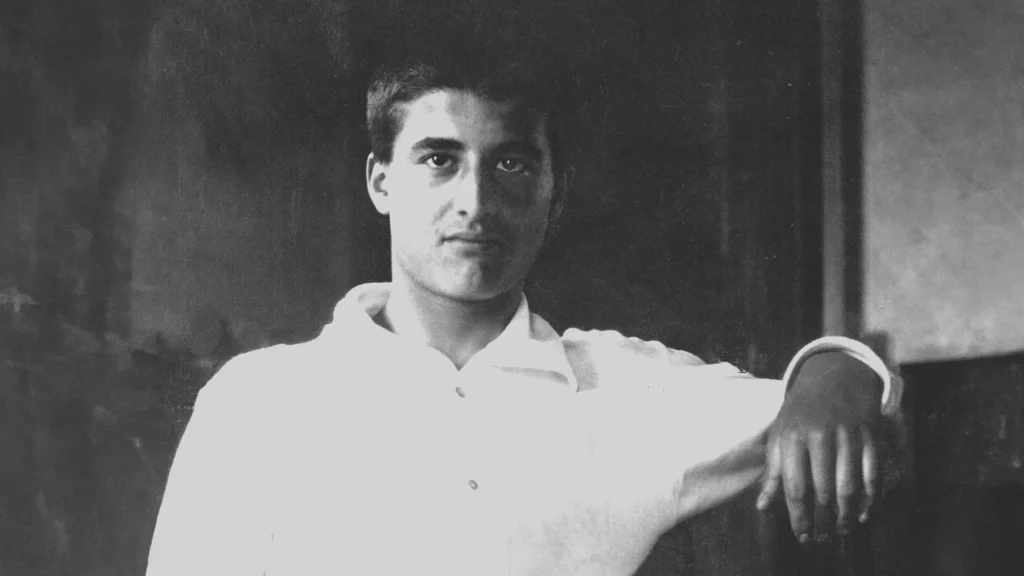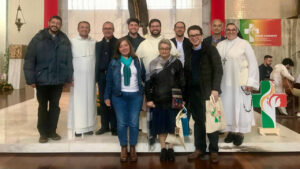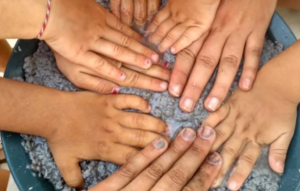Sometimes I wonder what will be left of us, of our memory, the day we die. When I think about it, I remember a song by Fray Orlando Rueda. In it, Dominic responds: “Under the feet of my friars I must remain. At their feet my footsteps will continue. On their lips my voice will be heard”. We Dominicans will live forever, if our brothers and sisters remember us. Those who come tomorrow will continue our work, and their voice will be our preaching. So today, July 4th, I would pose the same question to my brothers and sisters of the IDYM: In whose voice does Pier Giorgio’s voice sound today, whose feet continue to visit the sick, to give love to the unseen ones, to give a caress to an abandoned elder or a smile to a passer-by, in whom does Pier Giorgio live today?
99 years ago Pier Giorgio Frassati died, paralysed by polio in his home near Turin, Italy. We still owe his figure and his memory an enormous debt. Who else but us should remember him? And yet, sometimes it seems that he is the great unknown of the DYM. An irony, because it seems that he hides among us, that in the meetings he sits on the last bench and looks at us with affection. That he intercedes for us even if we forget to ask for it. But his memory remains, and the time has come for the Dominican Youth Movement to remember that Pier Giorgio is not just any saint. He is the patron saint of Dominican youth and was, until the last day of his life, a young Dominican, one of us.
Pier Giorgio’s choices
Pier Giorgio chose and wanted to be a lay Dominican, taking the scapular for the first time on April 22nd 1922: and he truly believed it! On August 31st 1923, less than a year before his death, Pier Giorgio wrote to his friend Antonio Villani the most beautiful love letter I have ever read about the Dominican laity, about belonging to the Order of Preachers. “I am very happy that you want to be part of the great family of St. Dominic”, he begins, and then speaks of the saint as his “father”. Although the concept of the Dominican Family as we know it today began to take shape at the General Chapter of River Forest in 1968 (45 years after his letter), his intuition did not fail him. He had already understood that we cannot be Dominicans without understanding that we are family, without recognising that we are part of something bigger, that we walk together with other brothers and sisters along the same path that St Dominic walked from the beginning.
Later, he understood perfectly the concept of Dominican freedom. He tells Antonio that the obligations “are very little”, because among other things he “could not belong to an Order that obliged too much”. He explained to him that although the Order was founded “as a militia to fight heretics”, now the laity “has been transformed and there are no longer severe obligations”, such as that of falling into mortal sin if one forgets to pray the Rosary one day. This explanation is faithful to our tradition. The Rule of St. Augustine, which is the rule of the Order, recommends us to act “not as slaves under the law, but as free men under grace”. This is how we young people understand our belonging to the Order: we join together to be free, to be happy sharing life with others, to undertake together courageous projects that change the world, as he changed it.
Finally, he explains to his friend why he chose the religious name of Fra Girolamo. An allusion, as he explicitly acknowledges, to Fra Girolamo Savonarola. It is a bold choice. According to Pier Giorgio, he chose him because he was a “beloved” figure to him, sharing with him the same “sentiments against corrupt customs”. However, it cannot be ignored that Savonarola was a saintly agitator of consciences, a non-conformist like Pier Giorgio, who was never “lukewarm”, who actively took sides for just causes and denounced corruption.
Veritas
When French troops occupied the German Rurh, he wrote to his friend Willibald Leitgebel on 28 January 1923: “We too have lost the most beautiful and best thing that God has given to all men, freedom, without which life becomes difficult”. He is making a comparison with the Italian misfortune, when Fascism came to power in October 1922. And against Fascism he fought many times, resolutely and without half measures. When Benito Mussolini’s corrupt and violent regime murdered Giacomo Matteotti, perhaps his most famous opponent, he wrote again to Antonio Villani: “God made use of the poor and honourable Matteotti to expose before the whole world the infamy and filth hidden under fascism”. And when the fascists tried to storm his house on June 22, 1924, armed with truncheons and other weapons, Pier Giorgio confronted them ” with his bare fist “, without being intimidated and making them flee.
The motto of the Order is “Veritas”, the truth, and Pier Giorgio carried it in his heart as the most beautiful flag. He was never silent in the face of injustice and was personally involved in the fight against it, even physically. When he listened to Mussolini’s speeches, he said that his blood “boiled”. Similarly, today’s young Dominicans’ blood boils in the face of injustice, oppression and corruption. Extraordinary testimonies are those of the young people of the DYM who live in dictatorships like in Venezuela or Zimbabwe, who defy the constant fear of oppression like in Taiwan, or who are a miracle in contexts of poverty and violence like in the Philippines, Nigeria or Colombia. Wherever there is one of us: combative, passionate, hopeful, who does not give up even when all seems lost, like Frassati, truth and justice are not dead.
“I await you all in Paradise”
But the life of the good ones is quickly extinguished. On July 4, 1925, Pier Giorgio died. His family was not aware of the seriousness of the events until it was too late. Neither the best doctors in Turin nor the anti-polio serum urgently ordered from Paris arrived in time to save his life. He died reading the life of Saint Catherine of Siena. Shortly before his death, someone asked him what his best friends, who called themselves I Tipi Loschi, the suspicious types, would do without their Robespierre (the affectionate nickname they had for Frassati). He replied: ” I await you all in Paradise “.
His life was an extraordinary test of freedom. It amazes me how much he was able to achieve in such a short time. I am now 25 years old, one more than he was when he died. I am a lawyer and he is an engineer, albeit posthumously, walking the path he walked a hundred years ago. Because in a way, all the young Dominicans of today are his successors. I feel that I owe him to live life as Jesus taught us, Dominic preached to us and he, Frassati, witnessed to us: a life where death does not have the last word. A life where we remember the brothers who have gone before us, because their hopes are kept alive in our struggles. A life where being a Dominican implies above all to be united in love, to be a light for those who have forgotten that they have the right to hope, where preaching is incarnated in action and where no one has more love than he who is ready to give his life for his friends (John 15, 13).
For this reason, and for all that he means to us, we must reclaim his memory. We must once again highlight the importance of his testimony. Because a Dominican is nothing without his community, and because a Dominican never betrays his brothers: he neither leaves them alone, nor allows anyone to forget them. Happy day, Dominican Youth Movement. And happy day to him too, on the day we celebrate his memory. To Pier Giorgio, our brother.
Bogotá DC, Colombia. Thursday July 4th 2024
Memorial of Blessed Pier Giorgio Frassati. Patron of the IDYM
By Carlos F. Beltrán. International Coordinator of the Dominican Youth Movement




